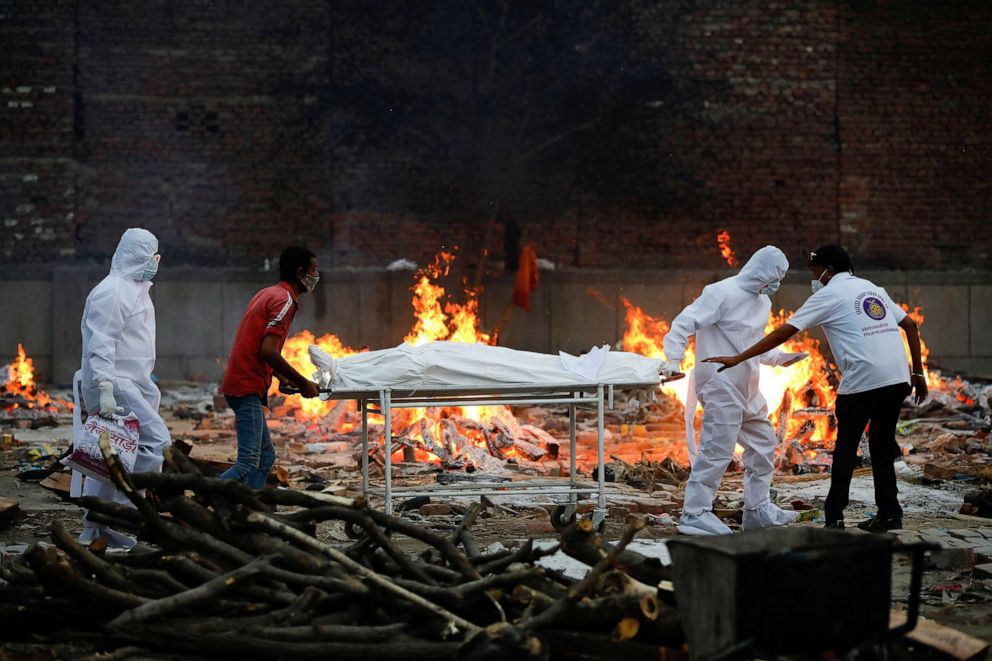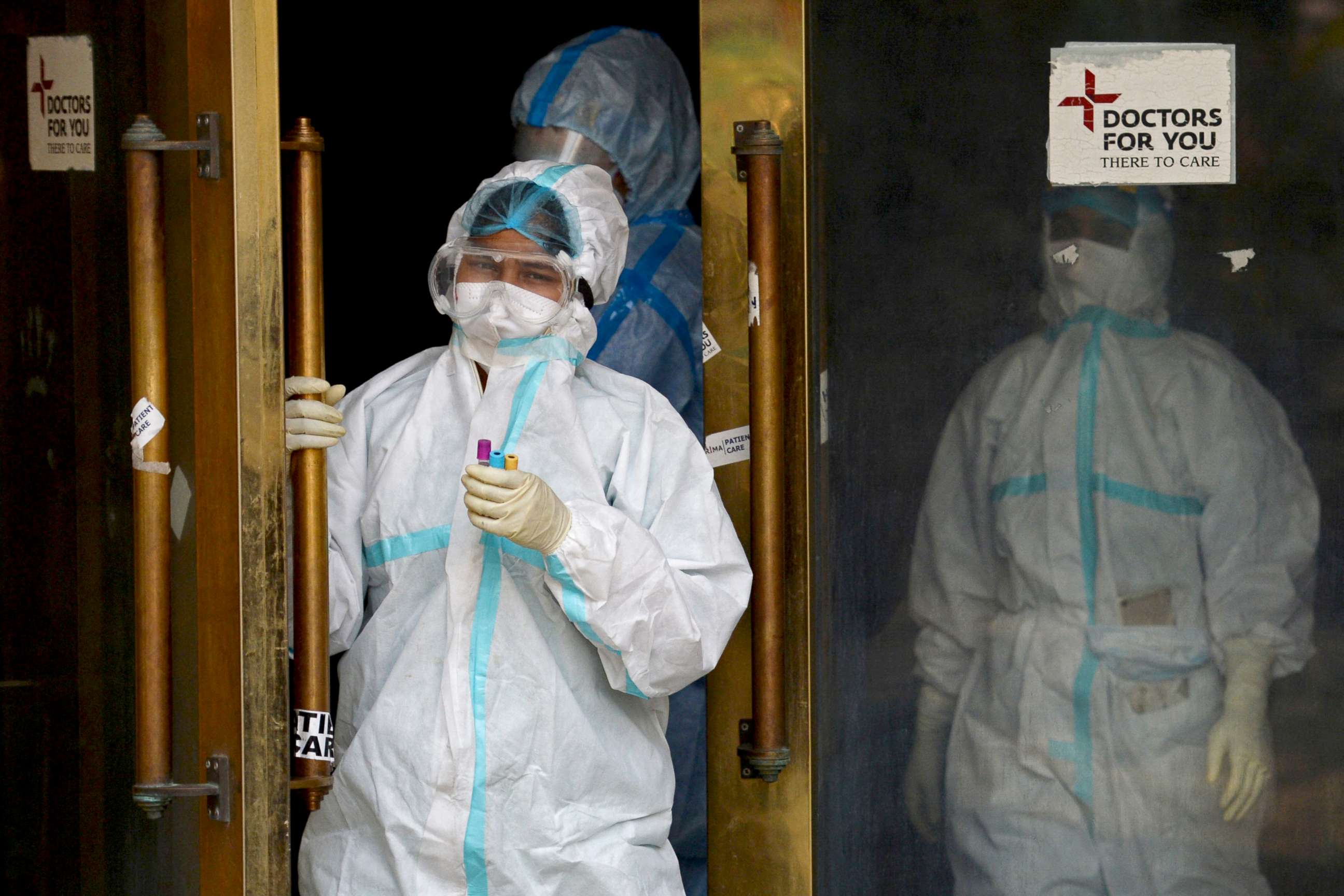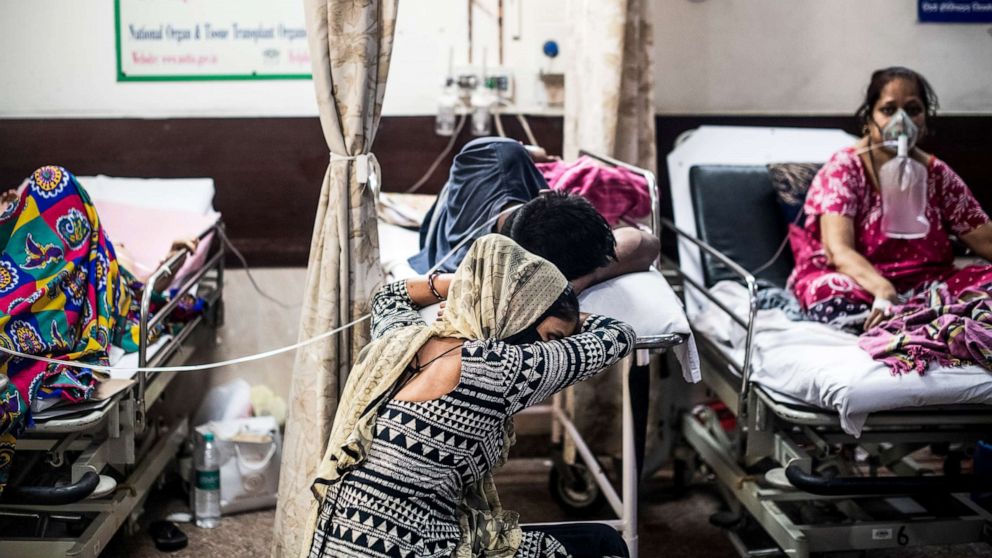Why Indian Americans are feeling helpless right now: OPINION
An average of 120 people have died in India every hour over the last two weeks, according to the Indian Ministry of Health. That’s 120 lives lost during a commute or an episode of "Survivor" or a mundane Zoom meeting. The furnaces at crematoriums are melting from overuse, officials call a third wave of the virus "inevitable," remdesivir rules the black market, gurudwaras have swapped food offerings for oxygen and Indian health care workers have lost hope in their government. Many describe the situation as "grim."
As a grandchild, niece and cousin to loved ones in India -- a country I fiercely celebrate and do not view as "grim" -- I cannot put into words the helplessness I feel for my family and country 8,000 miles away.
And I’m not alone. Four million Indians in the United States and 36 million worldwide are overcome with gut-wrenching despair for sick loved ones and preventable lives lost.
This past week, I’ve spoken to dozens of Indian-Americans, who expressed a shared feeling of anguish and helplessness.

Ankit Shah, who lives in New York, is also the son of Indian immigrants.
“Between my parents, our extended family and friends, we have lost 40 people,” he said. He worries most for his parents. “They're halfway across the world from the land they grew up in and helpless to do anything,” he added.
An immigrant from Fremont, California, learned a close friend was sick in India over text message. She said, “We talk about Vedanta, we talk about all this spiritual and religious stuff ... but right now I am asking myself -- what is the point of living anymore?”
Seema Hari, who’s lost track of the people she knows who have gotten sick or died, counts down every day to 7 p.m. when her parents wake up in India. She said: “It is almost like we have not even been afforded the privilege to grieve, because loss is so relentless.”
Many have channeled devastation into collective efforts by raising money for supplies and providing public health support. Joy Batra, whose family dedicated hours to finding her uncle an ICU bed, said, “I have friends who spend entire days helping people find oxygen.” Prarna Mansukhani, a designer in New York and a daughter of immigrants, said her uncle wired money to cab drivers, vegetable peddlers and maids. One person had a dollar left.
But hospitals are still full and people are dying on the street. And for Indian-Americans with families of lower socioeconomic status in India, resources are unlikely and isolation may be impossible.

Mansukhani said the reason her family is surviving in Mumbai is the same reason she’s in America -- structural privilege from being higher caste. But she worries about her country. “The feeling can’t be described -- of worry, of guilt, of not knowing how inequality, environmental degradation safety for women and girls will ever get better. And now, there’s this,” she said.
With millions unable to say goodbye in person, COVID-19 has tested human capacity for inhumanity. Today, Indian-Americans have had any semblance of closure stolen. Even with tremendous effort, we are unable to change a dire situation and unable to set foot in our home country, watching it crumble from afar. Control has been thrown out the window.
Research tells us that a lack of control or helplessness increases distress. While vaccines are become increasingly available and states loosen restrictions here, your Indian-American neighbor, coworker or friend’s mind is likely in India.
There are still ways to help even when drowning in a sea of helplessness.
“A little grace goes a long way. I’m always grateful when people acknowledge what is happening,” Batra said. “It’s even better when people raise awareness, donate and petition for aid.”
Added Hari, “Offering help without asking me to explain what I am feeling is helpful -- and making material donations.”
Mansukhani told me, “Donating is wonderful, but I also want people to know the truth. Please don’t continue to benefit from our yoga, meditation and ancient wellness practices while assuming India’s own cultural and political legacy led us to this point. Acknowledging history and the consequences of colonization would be everything to me.”
Whether it’s donating, recognizing painful pasts or lending an ear to an Indian-American you love, I hope India is on your mind.
Dr. Divya K. Chhabra is a writer and psychiatrist in New York City and a resident in ABC News' Med Unit.




